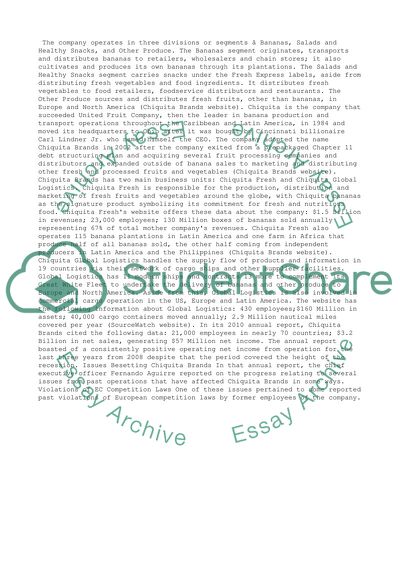Cite this document
(“Chiquita Brands Inc Essay Example | Topics and Well Written Essays - 1500 words”, n.d.)
Retrieved from https://studentshare.org/management/1429774-chiquita-brands-inc
Retrieved from https://studentshare.org/management/1429774-chiquita-brands-inc
(Chiquita Brands Inc Essay Example | Topics and Well Written Essays - 1500 Words)
https://studentshare.org/management/1429774-chiquita-brands-inc.
https://studentshare.org/management/1429774-chiquita-brands-inc.
“Chiquita Brands Inc Essay Example | Topics and Well Written Essays - 1500 Words”, n.d. https://studentshare.org/management/1429774-chiquita-brands-inc.


